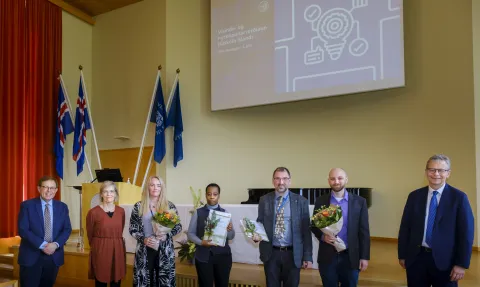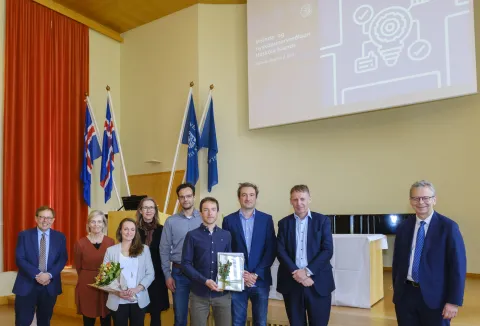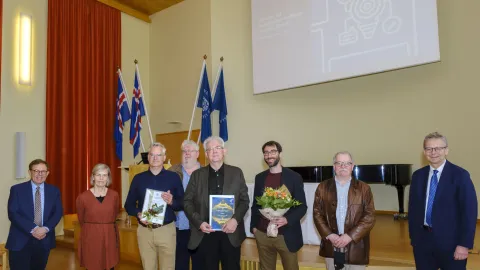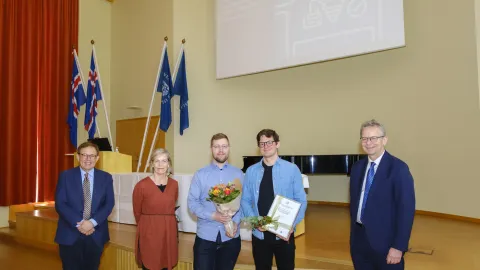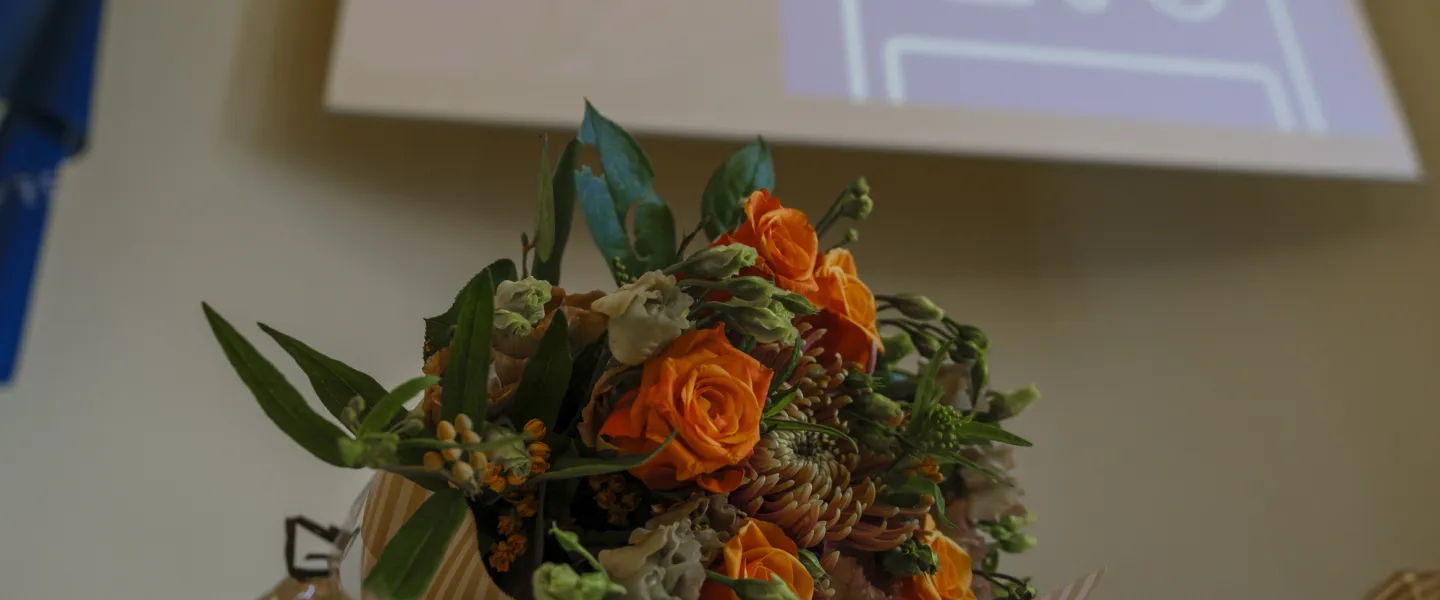
A new treatment for Cerebral Malaria in children that does not have to be administered in a hospital received first prize in the annual competition for the Applied Science Prize at the University of Iceland that ended in the University's Aula today. Three other projects on variable stiffness in prosthetic feet, visual presentation of glacier retreat, and software for using Icelandic more extensively in a digital world, also received prizes.
This was the twenty-third time the award, formerly the University of Iceland’s Applied Science Prize, was presented. A record number of submissions were received this year, or 50 proposals. Prizes were awarded for the best idea in four categories. Health; Technology and Progress; Society; and Incentive Award. The overall winner was selected from the winners of each category.
The criteria used were originality, presentation, social impact (partly based on the UN sustainability goals), and to what extent the project was in line with University policy and supported its operations.
